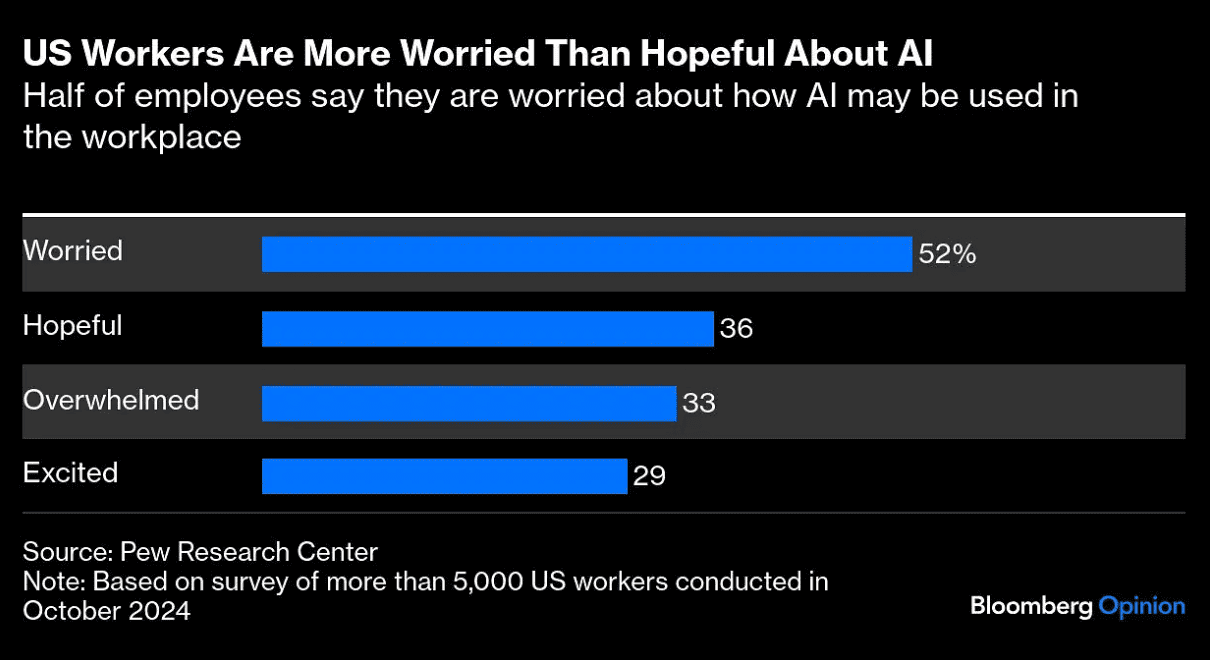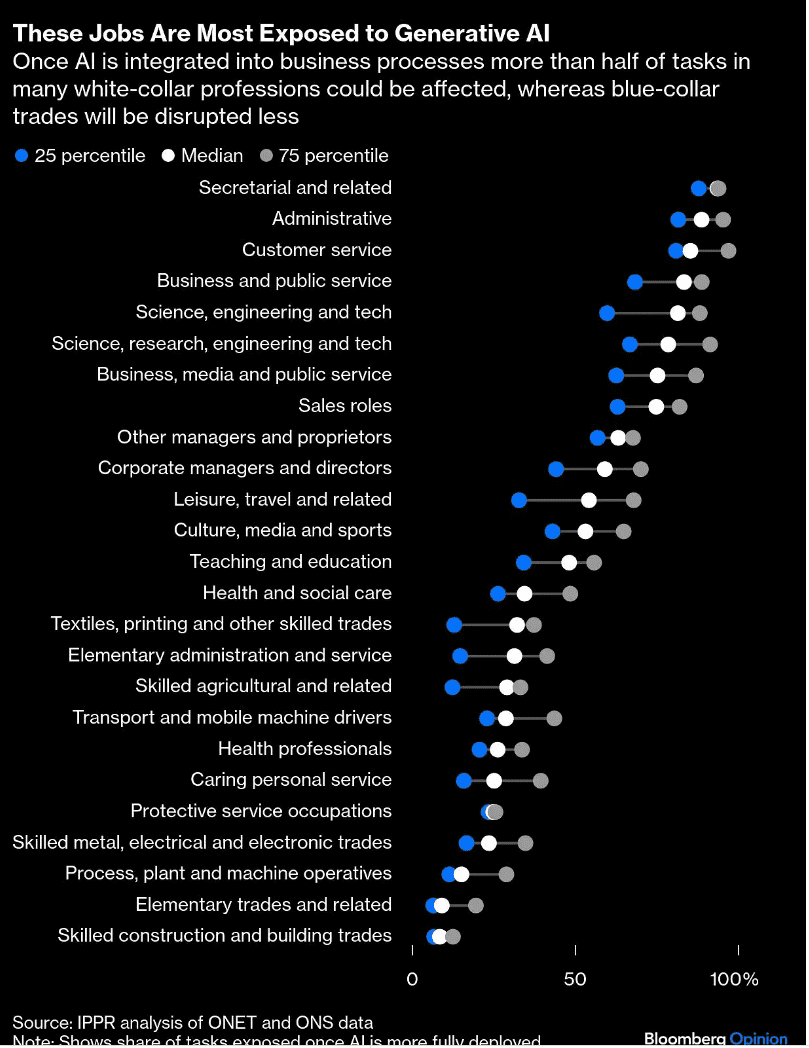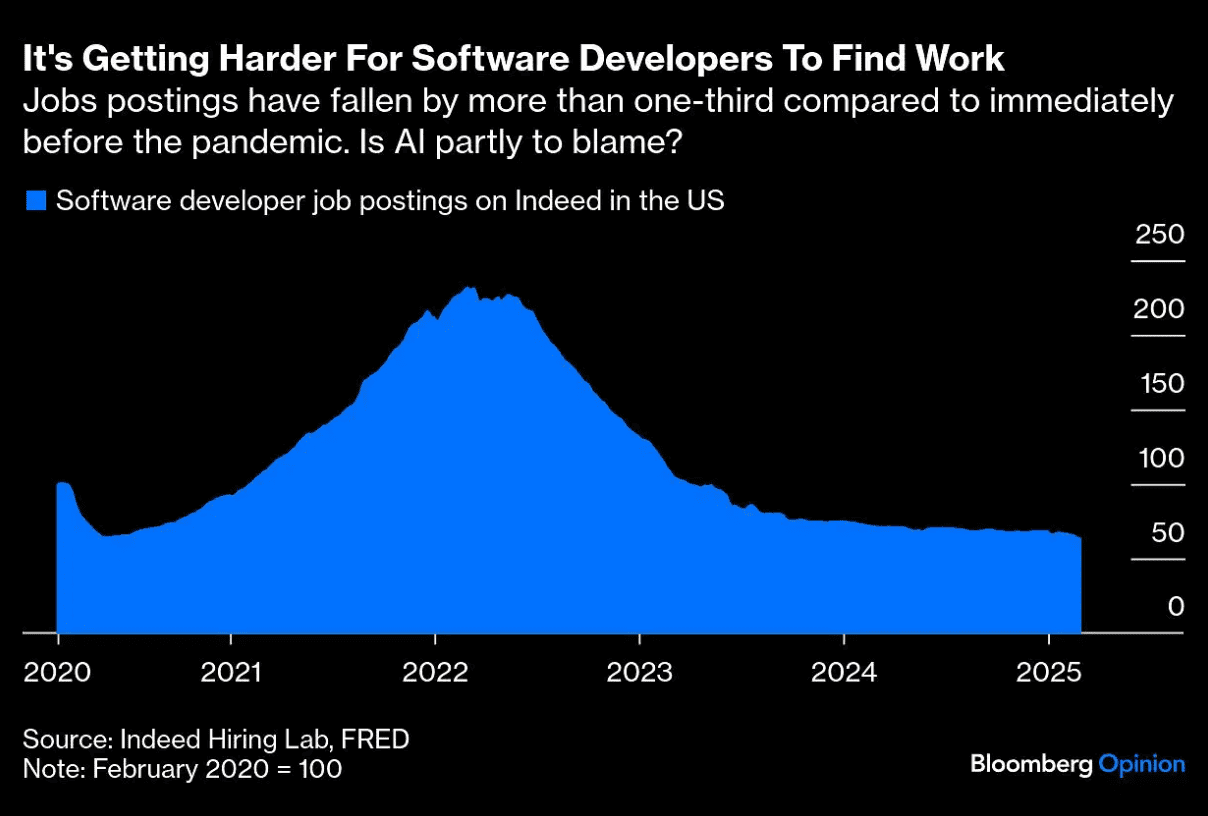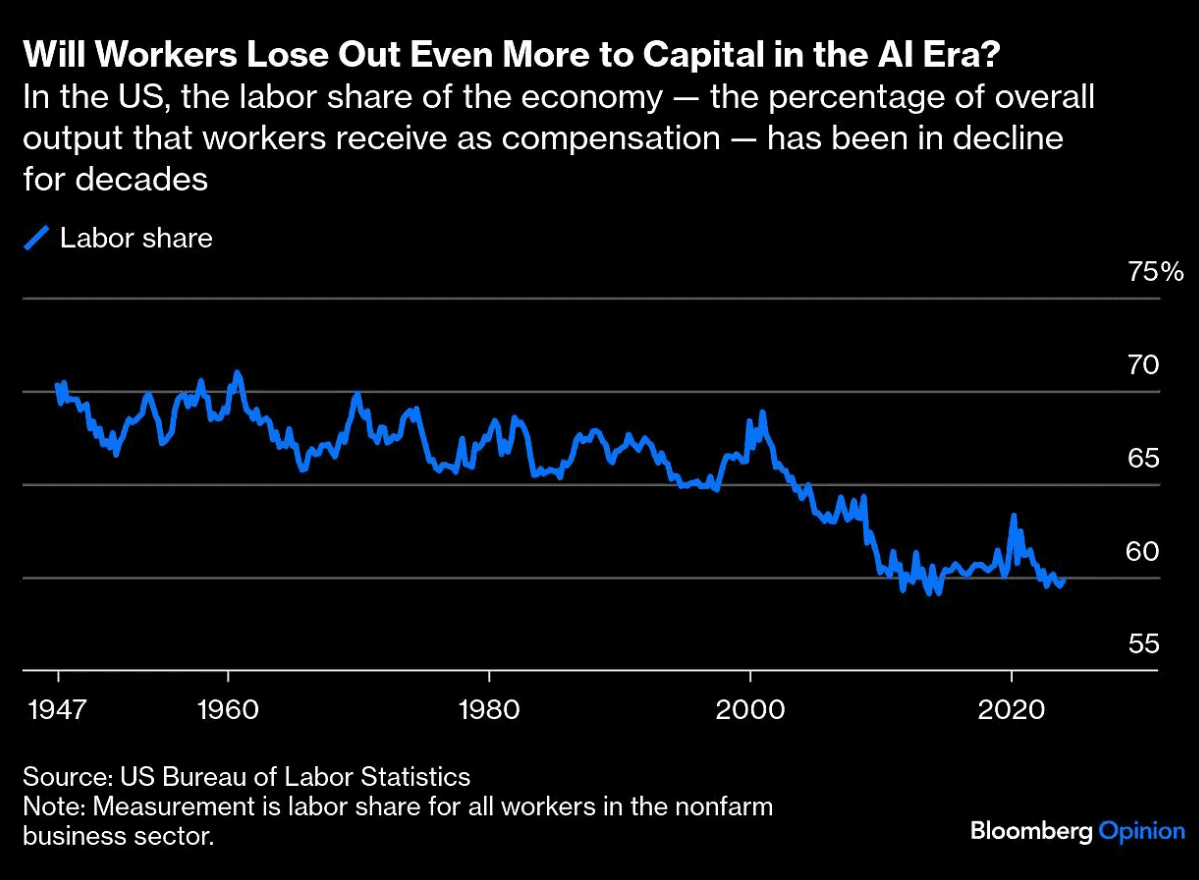Hello!
Could artificial intelligence replace me at work? This concern is increasingly weighing on my mind and those of countless other white-collar professionals. There’s a term for it — FOBO, or fear of becoming obsolete—and, unfortunately, our worries aren’t completely baseless.
I’m not suggesting we panic, but I believe knowledge workers — a broad label for roles like administrators, financial analysts, software developers, legal experts, and creatives, whose positions are prime candidates for AI-driven change—should brace for significant disruption.
This involves leveraging AI to boost productivity while also crafting a fallback strategy should attempts to hold off the rise of automation fall short.

Not long ago, I was inclined to brush off chatbots as quirky, mistake-prone mimics churning out random responses. But the newest models can think logically and tackle intricate challenges, often producing answers that could easily pass for human. Their skills are steadily improving, and the price of deploying AI keeps dropping.
In the past, automation and outsourcing mostly hit blue-collar workers. Now, it’s the pampered professionals typing away in offices (or from home) who face the greatest threat of being replaced.

The emotional impact of seeing intellectual labor and expertise lose value is already profound—why bother with college degrees or mastering a foreign language, one might wonder? Yet the economic fallout could hit even harder.
Knowledge workers frequently pair up with each other, a pattern called assortative mating. Once seen as a driver of inequality, this trend now puts those households at double the risk of being upended by AI.
The IPPR, a think tank, calculates that knowledge work currently represents about half of the UK’s labor market, with up to 70% of those tasks potentially being reshaped or displaced by generative AI.
Meanwhile, a recent Moody’s Analytics report indicates that individuals earning over $250,000 annually drive roughly half of all consumer spending in the US. What happens if algorithms take over the jobs of millions of these high-income workers?

Salesforce Inc. has announced it won’t be hiring software engineers this year, citing productivity boosts from AI tools. Meanwhile, Nvidia Corp. is set to mandate that all its software engineers utilize AI agents, and at Alphabet Inc.’s Google, over a quarter of new code is now being produced by AI.
In the banking sector, Goldman Sachs Group Inc. CEO David Solomon notes that AI can generate nearly an entire IPO prospectus in minutes—a task that once required a six-person team two weeks to complete.
Just last month, Singapore’s DBS Group Holdings Ltd. revealed plans to reduce its workforce by about 4,000 contract and temporary employees over the next three years as AI assumes their duties. If AI were simply set to relieve us of tedious, repetitive chores, I’d likely feel less uneasy.
However, the newest AI models demonstrate reasoning abilities on par with a PhD, which changes the game entirely.
 It’s wise to have a contingency plan in place. Start by getting comfortable with AI tools and mastering their use—this should boost your productivity and help you deliver more meaningful work.
It’s wise to have a contingency plan in place. Start by getting comfortable with AI tools and mastering their use—this should boost your productivity and help you deliver more meaningful work.
Along the way, you’ll gain insight into whether your role is at risk, while also building a buffer to avoid being among the first cut if layoffs hit.
That said, not everyone will transition into an AI overseer role—so keep building your network on platforms like Quasa Connect and beyond, ensuring you’ve got a lifeline if your career needs rescuing.
For those still preparing to enter the workforce—or guiding their kids through the process—tough decisions lie ahead. Nvidia’s CEO Jensen Huang recently expressed doubts about the value of learning to code, suggesting that natural language programming will soon make it accessible to all (though I lean toward Bill Gates’ view at Microsoft Corp. that grasping the fundamentals remains worthwhile).
Likewise, if AI chatbots begin handling the routine tasks in fields like investment banking or management consulting, landing a sought-after internship or graduate program position could get significantly trickier.
For those more established in their careers, it’s worth assessing whether you possess skills that could lead to a job or business venture less vulnerable to AI’s reach.
Put simply, now’s the time to polish that side gig. While I can’t picture myself straying far from journalism, I’m half-serious about having potential as a landscape gardener or barber—or, if those don’t pan out, maybe running a cat café or cheese shop (only partly joking).
Also read:
- People Will Pay *More* to Not Have to Deal with a Human: Mastering a Simple Profession as a Shield
- The Future of Remote Work is Inextricably Linked to Cryptocurrencies: A Look at Quasa Connect
- Сrypto Freelancing And The Future

With AI seemingly favoring capital owners over workers, a smart step could be to build up your asset portfolio. Investing in an index fund gives you a stake in companies poised to benefit from AI and its productivity boosts, while also serving as a safeguard against job loss (though the sky-high valuations of some AI-related stocks suggest plenty of people are already all in on this strategy).
Unfortunately, there’s no guarantee AI won’t steal your knowledge-worker job. But having a back-up plan can at least help keep the FOBO at bay.
Thank you!
Join us on social media!
See you!






